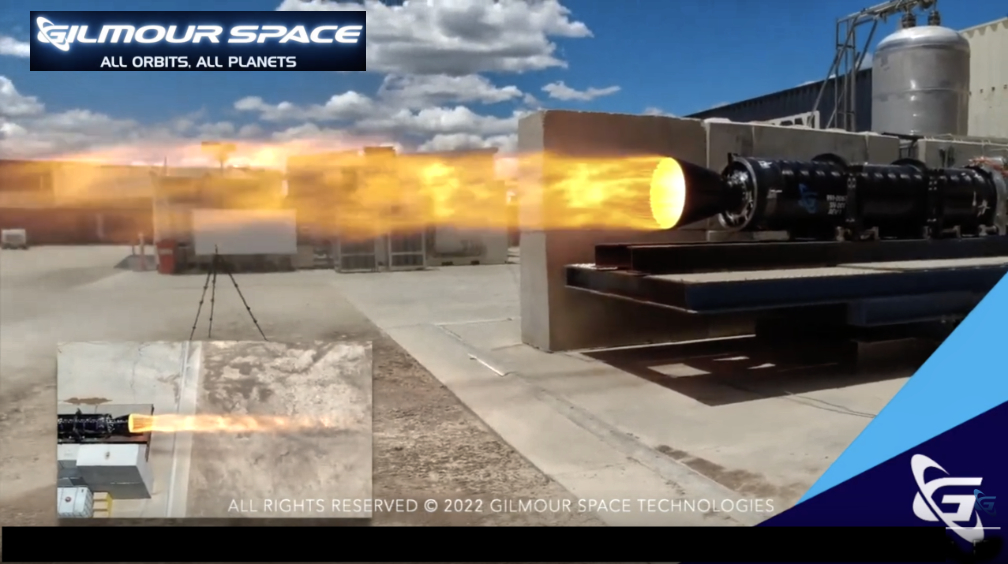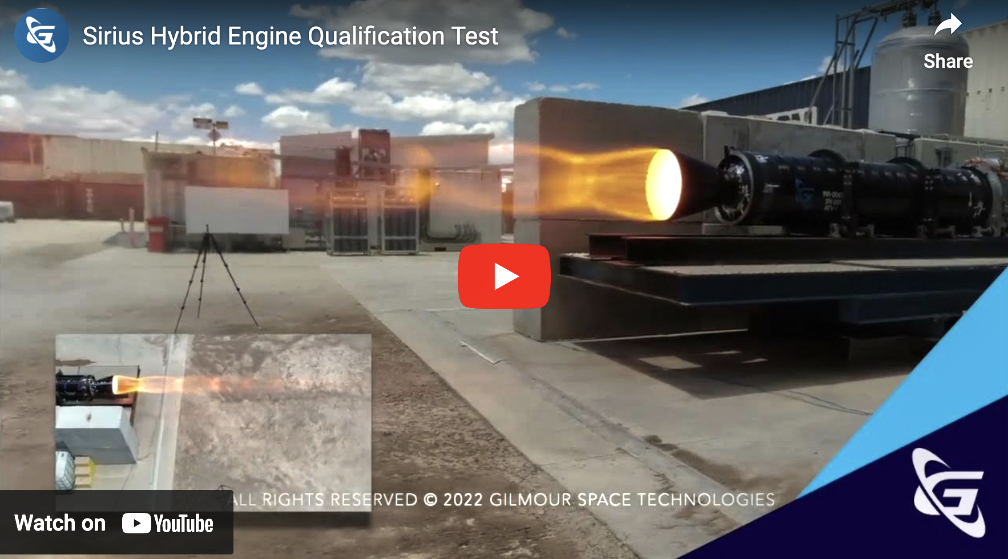
Gilmour Space Technologies have successfully completed the final qualification test of the company’s main Sirius hybrid rocket engine, paving the way for the country’s first orbital launch attempt of an Australian-made rocket next year.
The Queensland-based rocket company is developing Eris, a three-stage launch vehicle that will be a cost effective and greener alternative to traditional liquid and solid propulsion rockets. Sirius is a single-port hybrid rocket engine developed by Gilmour Space that uses a liquid oxidizer and a proprietary solid fuel.
“What you see here is Sirius, our main hybrid rocket engine, five of which will power the first and second stages of our Eris rocket to orbit in the first half of 2023,” said Adam Gilmour, CEO and Co-Founder of Gilmour Space.
“As this was a final qualification test, we also tested it to destruction to help us understand the limits of its design,” Adam Gillmour added. “Any findings will help improve the performance of future engines. I’m happy to share that the test was a success. Our Sirius engine generated a record 115 kilonewtons (or 25,850 pounds force) of stable and efficient combustion. This is the most powerful rocket engine ever developed in Australia — it achieved its mission duration requirement before failure. All engines are now qualified for our first orbital test launch next year.”
Watch the test fire video at this direct link…

About Gilmour Space
Gilmour Space Technologies is Australia’s leading venture-backed space manufacturer of launch vehicles and satellite platforms. Headquartered on the Gold Coast in Queensland, the company is developing, manufacturing, and launching its Australian-made Eris rocket and G-Sat satellite platforms to orbit, providing affordable space access to global customers. Since starting its rocket program in 2015, Gilmour Space has pioneered a new space ecosystem for commercial launch in Australia. The company is proud to be backed by some of the country’s biggest investors, including venture capital firms Blackbird and Main Sequence, the Queensland Investment Corporation (QIC), superannuation funds HESTA, Hostplus and NGS Super; and international investors such as Fine Structure Ventures and 500 Startups.
